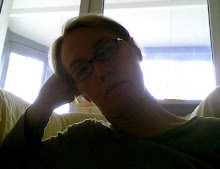Part I - Introduction
Part II - Televoting
Most of the rules for the 59th edition of ESC are dedicated to the juries. The slogan of “transparancy” in media refers primarily to the jury. But what about transparancy in the rules? The more detailed description of the rules refer to a "Green Document", which is withheld from the reader:
1.3.1 "Each national jury shall vote in accordance with the instructions included in the so-called "Green Document" and
1.3.2 "The National juries shall watch the live transmission of the second Dress Rehearsals and proceed to vote in accordance with the EBU's instructions in the so-called "Green Document”.
In 1.3.3 duties of the jurors are described, let me summarize: The jury votes at the dress rehearsal one day in advance. They have to confirm that they comply with the rules and vote independently. In each participating country the results of 5 jurors must calculate with a computer under supervision of a notary jury chairman, then write on a piece of paper and fax to "the Pan-European Televoting-Partner". Chairman of jury and notaries must be kept available during the show to be able to answer questions in case of any discrepancy.
In 1.3.1 it is announced who can be a member of the jury: "Radio DJ, artist, composer, author of lyrics or music producer." In contrast to the composition of the Reference Group the EBU wants to balance "in terms of gender, age and background." (6 years we were fooled with a jury of amateurs and now they thought about their composition?) However, this means that no music editors as in earlier times, no music journalists, no musicologists or music bloggers are expected. These jury members are depend on music industry, they are likely to be close to a music label, so they have to evaluate either their colleagues or their competitors.
The names of jury members have to be published weeks before the contest. Also their results will be presented on a homepage after the show. If they depend on a music label they may tend to
self-censorship. At any case with this regulation it is not clear how to judge independently and freely.
I would simply like to point out that we are talking about an international music competition with different participating countries. Therefore the rules should offer a few criteria that are committed to the different "European" traditions and music markets. It should present a few guidelines that represent a challenge for singers, composers and authors. The framework has nothing like
that. It is obvious that the use of the jury is to purely statistical purposes.
While the audience calls for no more than 1 to 3 favorite songs the jury must bring ALL songs in a hierarchy. With 40 relatively uniform pop music pieces this is nonsense. Nobody will be able to judge why his place 23 has not become place 18 and so on. It is interesting that after all this year the professional juries of 2 countries already ridiculed this task.
The jurors are only required to a special behaviour, but referring to evaluation of songs they can do what they want. Without any frame it is unpossible to make their evaluation understandable. For precisely this reason the Reference Group is free, too, to suggest an abuse.
Unter paragraph 1.3.3 the jury is terrified: "If it does appear that votes are casted only in the intent to abuse the voting system or false to the final results or have not been under taken in accordance with the Green Document, the EBU [and partners] reserve the right to remove examined votes for allocating the ranks”.
2014 EBU again tightened measures for the jury AND televoter: “If voting irregularities are detected before, during or after the contest in favour of any represented country, the Reference Group will automatically initiate procedures which carry a penalty of exclusion of the respective participating broadcaster from the contest for a maximum of three consecutive years. Just as football clubs are in principle accountable for the behaviour of their fans, we will hold – on a case-by-case basis – participating broadcasters accountable and make them responsible to prevent voting irregularities in favour of their entry," said Dr Frank Dieter Freiling, chairman of the Reference Group.
At first the rules have nothing to do with a music competition. Moreover the Reference Group of EBU seems to see themselve as a kind of Western Eurovision Policy. To me the rules seem a legitimacy for economical and political abuse.
Next:
Rules of Eurovision Song Contest - moral challenge and intellectual defeat
:::
Abonnieren
Kommentare zum Post (Atom)




Keine Kommentare:
Kommentar veröffentlichen